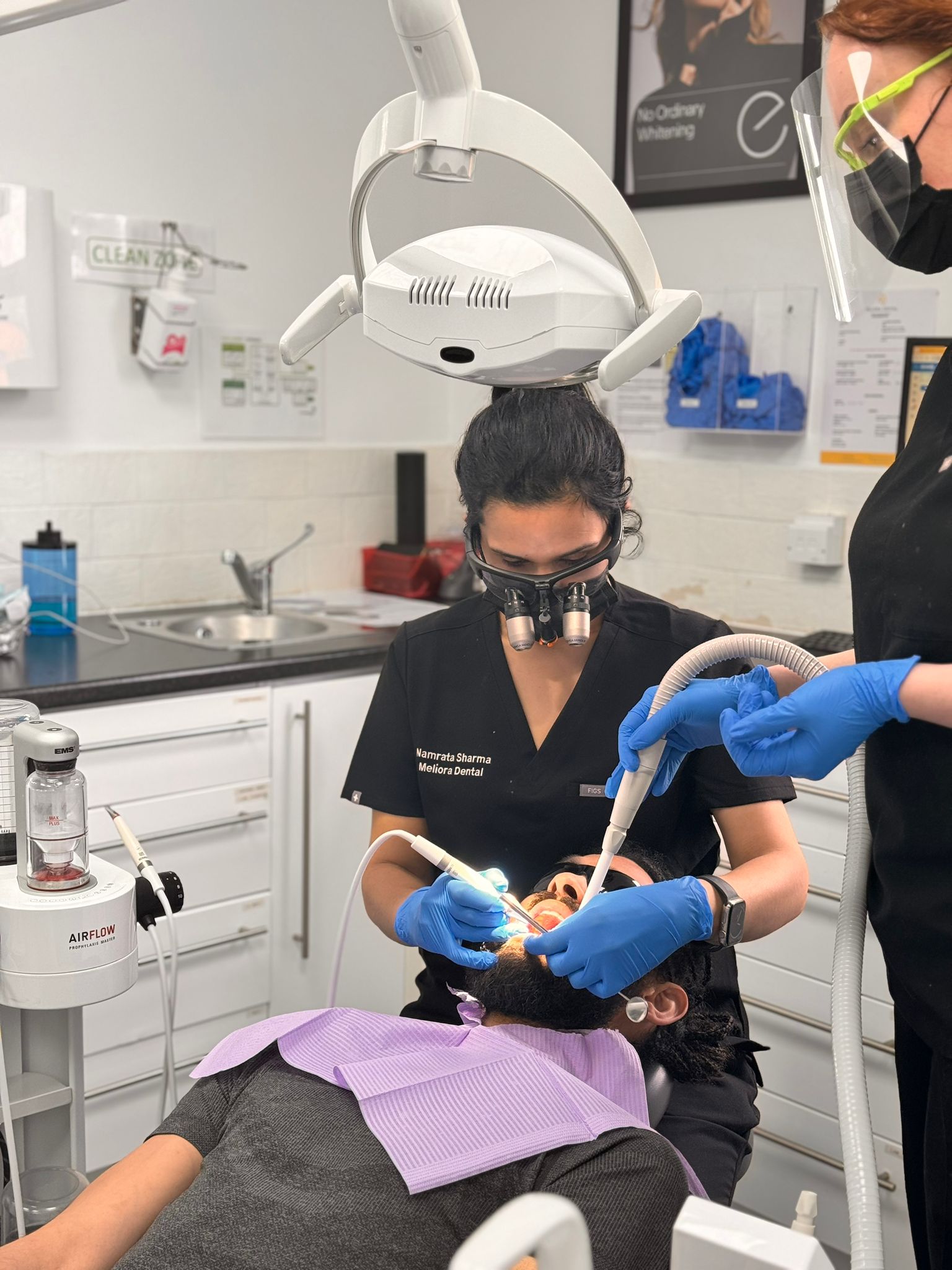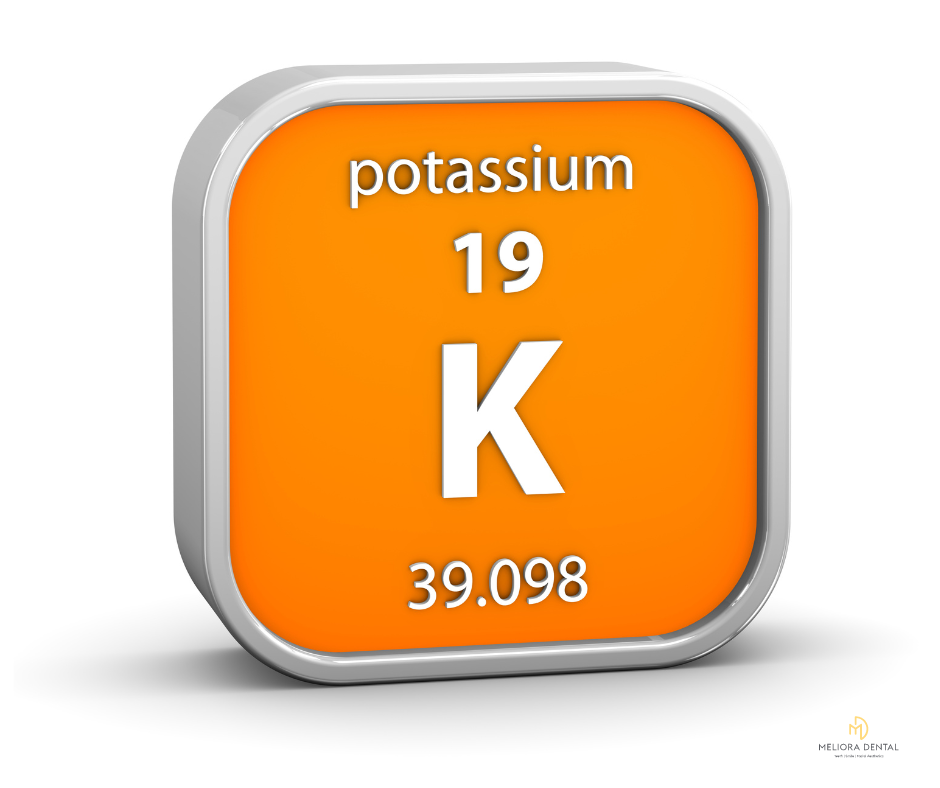There is a bigger spotlight than ever on the impact the food and drink we consume can have on our health, and as dentists, we feel this is long overdue. If you’re reading this and have been searching for a ‘dental hygienist Leeds’ in Google, Meliora Dental is your go-to dental practice for nutritional advice on gum and dental health.
The powerful effect your diet can have on your tooth and gum health cannot be overstated. Consuming the right vitamins and minerals will set you on the path to maintaining strong dentin and enamel, whilst your gums will stand a good chance against the threat of inflammation and gum disease.

Dr Namrata Sharma is our leading authority on gum health and nutrition. She has helped countless patients develop better nutritional habits, and to limit and eradicate harmful habits such as smoking, vaping, and consuming alcohol.
We will introduce you to Dr Namrata later in the piece. For now though, let’s look into which vitamins you should be consuming for good gum and dental health, and in turn, good overall health.

Found in:
Phosphorous plays a preventive role in keeping your tooth enamel in good condition, and it can even help actively regenerate and strengthen it.
But that’s not where the benefits end. Phosphorous is a facilitator for the absorption of calcium, which is another crucial vitamin needed for bone and enamel maintenance.

Found in:
Calcium is one of the main vitamins for healthy tooth enamel, aka your teeth’s armour against decay and demineralisation. Calcium-rich foods like cheese are particularly good for neutralising the pH levels in the mouth. The higher the pH level in your mouth (anything over 5.5 is considered dangerous), the more chance you have of developing cavities. The moral of the story? Eat more cheese to help lower the pH levels in your mouth, just make sure you’re enjoying it as part of a balanced diet.

Found in:
Potassium plays a complex role in preventing jawbone deterioration. Without sufficient jawbone volume, teeth can begin to loosen and eventually require extraction.
Potassium neutralises the blood, stopping it from becoming too acid-dense. In circumstances when the blood does indeed become too acidic, the body draws on the bones’ supply of calcium. By neutralising the blood, potassium prevents the risk of the jaw losing vital calcium and its structure becoming compromised.

Found in:
Vitamin C aids with a variety of healing processes and the formation of new and healthy tissues. Depleted levels of vitamin C can present as gum inflammation and swelling. Smoking snatches away vitamin C levels, as it increases the oxidative stresses in the body. This, in turn with the plaque and tartar accumulation caused by smoking, can quickly bring on conditions such as gingivitis (early onset gum disease) and periodontal disease (advanced gum disease).
So, we’ve looked at a few of the gum and tooth health-loving vitamins and foodstuffs. But what about the bad?
Culprits
Saliva is an essential part of our oral anatomy, helping to rinse away leftover bacteria that would otherwise feast on the acids produced in our mouths when we eat sugary foods. Tooth decay and halitosis are common consequences of chronic bad breath, as well as fungal infections.
If you enjoy foods and drinks that dry the mouth, make sure you drink plenty of water afterwards, or foods with high water content such as cucumber or watermelon.
Culprits
Carbonated drinks which are high in sugar threaten your tooth enamel, causing it to demineralise. Once tooth enamel wears away, it exposes dentin, a weaker layer of material that lies directly underneath. As enamel is your teeth’s first defence against acid attacks, when it erodes away you increase your risk of problems like cavities.
A new study has shown that consuming just a single alcoholic beverage a day can upset the balance of healthy bacteria in the mouth, increasing the risk of conditions including decay and mouth cancer.
Over 1000 saliva samples were tested and daily drinkers were found to have a reduction in healthy bacteria in the mouth, as well as an increase in harmful bacteria.
When combined with smoking, regularly consuming more than the recommended 14 units per week can become incredibly dangerous. Here’s how.
Alcohol can change the structure of cells in your mouth, making it much for cancer-causing chemicals to become absorbed. It is also believed that alcohol can increase the potency of toxic chemicals ingested whilst smoking.
Dental Hygienist Leeds – Essential Nutritional Advice For Healthier Gums
Dr Namrata Sharma is the lead periodontal dentist at Meliora Dental. She provides preventive care and restorative hygiene techniques to address gingivitis (early-stage gum disease), and periodontal disease (advanced gum disease).
One of the most significant parts of Dr Namrata’s work as a dentist with a special interest in periodontics is providing tailored advice about the risk factors pertaining to gum disease. She always seeks to understand the lifestyles of her patients, always without judgment and with a desire to help them implement changes for the better.
This includes coming up with nutrition plans and educating patients on how specific foods can prevent and turn the tide on gum disease, decay, dry mouth, bad breath and a myriad of other oral health and hygiene concerns.
Neglecting the ecosystem that is your oral health can inadvertently affect multiple other systems across the body, including your cardiovascular health. Dr Namrata is continuously researching the latest developments in oral health and overall health, to help her patients not just improve their teeth and gums, but their general health too.
We are thrilled to be accepting new patients here in Leeds. If you’re seeking a private dentist, we encourage you to contact our friendly reception team.
Our state-of-the-art dental practice is home to equipment that renders your oral hygiene and dentist visits more streamlined, and stress-free. Look out for our next blog where we discuss this equipment and how it has tangible benefits for our patients when they come in to see us.
Please get in touch with us by clicking here.
BACK TO BLOG
